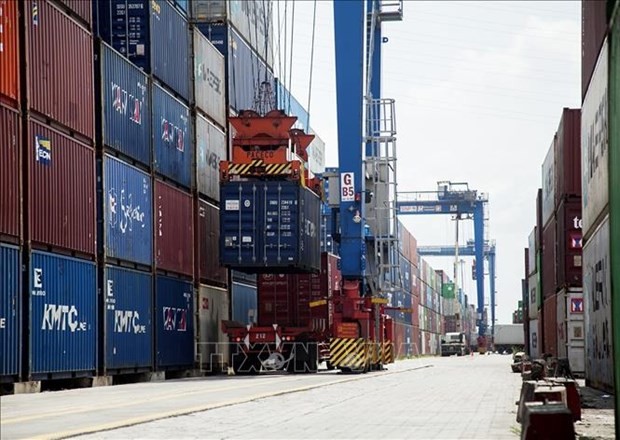
Authorities warn of risks from loopholes in foreign trade process: MOIT
Latest
This is a "loophole" of the seemingly tight process, leading to the documents being leaked out and coming to the buyer who has not paid the bank, Hai said.
 |
| Authorities warn of risks from loopholes in the foreign trade process. (Photo: VNA) |
In July, the Vietnam Pepper Association (VPA) reported that some of its members have exported peppercorn, cinnamon, star anise, and cashew nuts to the UAE but found signs of scams from the same buyer and the same bank based in Dubai.
They lost four containers of produce worth 400,000 USD when the goods arrived at Jebel Ali Port of the UAE. They are now at risk of losing one container of star anise scheduled to arrive at the port on July 26.
Last year, 100 containers of cashew nuts from Vietnam exported to Italy encountered similar problems. As the containers had been already dispatched, with some having reached Italian ports, the Vietnamese sellers claimed that they had not received any payment as agreed upon from the buyers and had lost track of the original documents of the consignments.
Anyone with the original documents can present them to the transporters for the release of the goods.
In these cases, the delivery company is responsible for the loss of the customer's documents, leading to the situation where the buyer received the goods without paying, Hai stressed.
He recognized the efforts of Vietnamese Representative Missions and the Vietnam Trade Offices abroad in supporting the settlement of the case and protecting the interest of Vietnamese firms.
In order to minimize risks in import-export activities, Hai advised exporters to use consulting and legal services, considering the service suppliers as their companions in the entire business process, not just when a dispute occurs.
Exporters need to buy insurance for goods to reduce losses in case of risks or disputes, he recommended, adding it is also necessary for importers to request checks and inspections of goods before delivery.
The official also advised businesses to share their information and stay more vigilant to any abnormal signs they find and minimize the use of payment methods using postpaid T/T (Telegraphic Transfer) and cheque, which has a high level of risk.





















